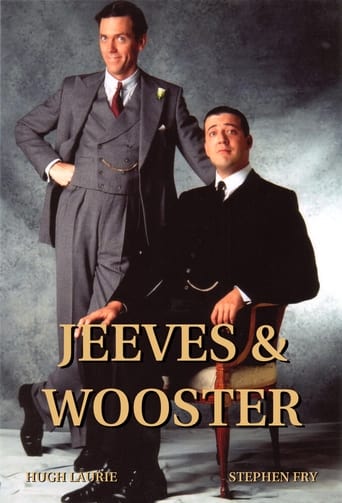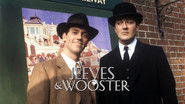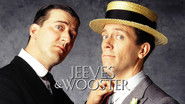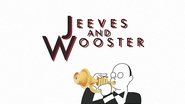william-read-2
Stephen Fry and Hugh Lawrie star in this memorable adaptation of the Wodehouse novels, and it is hard to imagine any other "Jeeves and Wooster" production will ever exceed the quality of their work in this respect. The criticisms of other reviewers of the changes in character over the short four years of production are validly made, but this only slightly detracts from the overall quality of the series.By the time this series started in 1990, the two principal actors were already well-established on UK television in a range of television programmes. It was a great change for them to embark on "Jeeves and Wooster", and after this series ended they continued their careers, as an "all purpose compère" in the case of Fry, and Lawrie as Dr House in US television. A quarter of a century has now passed since the series ended, and its timeless excellence will continue to impress audiences worldwide; the series is highly recommended.
Ben Dawn-Cross
It's sort of hard to review this series as a whole, because it does have it's ups and downs. For this reason, I'm going to review each of the seasons in paragraphs.In the very first episode, we are introduced to Bertie Wooster, who is portrayed to perfection by Hugh Laurie. He is the sort of man who is rich, but somewhat dim-witted. Just when it looks like he can't take care of himself, a valet appears at the door, by name of Jeeves. Jeeves is a very smart man, who, no matter how bad a situation Wooster finds himself in, Jeeves always finds a brilliant way to save him. He also played to perfection by Stephen Fry. In fact, most of the characters in the series are perfectly portrayed. I don't mean they're legendary performances, but for the most part, they're done very well. However, the first season does fall short of good segues between plot lines. You see, each of the episodes have more than one plot line, which is part of what makes the series so entertaining. However, in episodes 2 and 3 of the first season sort of feels like two separate stories in each half of the episode. This isn't necessarily bad, but it does tend to catch you off guard, if you think that the episode is over, but is actually halfway through. However, the season did redeem itself in the two-part finale, which not only has multiple plot lines that fall perfectly into place, but the ending is beyond hilarious.The second season was much more refined, with better construction, more interesting characters, and hilarious twists. Not much more to say about this, but it's great. In fact, around this time, some of the episodes were set in America, which is a nice change of setting.The third season was also good, but around the end of the season, the humour could get a little over-the-top and silly. It just didn't have the witty charm that Jeeves and Wooster is so good at.By the fourth season, the silliness was about as much as it could get. Even though some of the episodes stood out as great, the finale's ending was just outlandishly silly, despite being enjoyable.To sum up the entire Jeeves and Wooster phenomenon, it's really a very well-done show, which does capture the spirit of the original stories by P.G. Wodehouse. The backdrop for the show is perfect, and makes you believe that the characters are in the 1920s. However, the best thing about it is the theme music. Not only is it very 1920s-style, but it's so catchy you'll never get it out of your head. So, on the whole, it's a very enjoyable and well done show, and I find it's often overlooked.
Andrew Pelechaty
When it comes to comedy doubles, Stephen Fry and Hugh Laurie are one of the best. Their work in 'Blackadder' and their own sketch show 'A Bit of Fry and Laurie' is brilliant, so their combination on 'Jeeves and Wooster' makes this more subtle comedy surprisingly funny.'Jeeves and Wooster' - based on the P.D. Wodehouse stories - is more a comedy of manners and a subtle class satire than a laugh-track supported sitcom we're normally spoonfed with, which makes it even more interesting. Laurie plays Bertie Wooster, a well-meaning, but ultimately dim man of society (who doesn't really seem to do anything of notice) and is more interested in fooling around with friends and defying his meddling Aunt Agatha. Fry plays his valet Reginald Jeeves, a man with reserved manners, address and decorum who has an at-times acid tongue and always seems to save Wooster and fix his many mistakes. In a way, Wooster is similar to Laurie's Prince George in 'Blackadder the Third'. While George's stupidity was more obvious, and used as a deliberate comic tool, Wooster is more of a well-meaning buffoon, who wants to do the right thing but has an inflated view of his own intelligence, while still remaining endearing. Stephen Fry's Jeeves is the star of the show. His quick wit and subtle sarcasm provide the majority of the laughs and his calm demeanour reflects the conservative setting.While the main plots revolve around Jeeves cleaning up Wooster's latest disaster, the hour-long duration gives you time to get to know the characters, which is important for a relatively "gentler" comedy.If you're a fan of Fry and Laurie, then check out 'Jeeves and Wooster', you won't regret it.
classicalsteve
I do not believe that Stephen Fry and Hugh Laurie played Reginald Jeeves and Bertie Wooster. The spirit of Wodehouse through the characters of Jeeves and Wooster infiltrated the living presences of Fry and Laurie and for 23 wonderful episodes walked the earth and brought us back to 1920's England. There is such a remarkable chemistry between Fry and Hugh that is magical and inexplicable.For those who don't know the story, Wooster is the stupid aristocrat who leaps into turbulent waters without looking and his valet, Jeeves, must rescue him from drowning in bad judgment. However, Jeeves is incapable of instilling any kind of good sense into his employer, although he always tries. In many ways Jeeves and Wooster is a modern day "Marriage of Figaro", however here the lower social class mentors the upper and even saves them for themselves.Bertie is not the only fool populated in Wodehouse's world. Much of the young male English upper-crust is portrayed as bumbling inept fools who have too much time on their idle hands, conniving and scheming in strange and frivolous exploits. And Bertie Wooster is the quintessential heir to not only stupidity but a large family fortune. In short, Bertie is a scatterbrain's scatterbrain who would bet (and lose) the entire family estate on the local sack race and then have to explain to his Aunt Agatha that it was a sure thing. But his plans do not end with monetary exploits. Bertie would push a young boy off a bridge in order that one of his colleagues would rescue him in order to impress a young woman, only to have it backfire. It is Jeeves who always comes to the rescue. Jeeves is far more worldly. His understanding of human nature is in direct proportion to Bertie's lack of good sense. Wooster and Jeeves go together in much the same way as Kirk and Spock.Some in the aristocracy apparently complained of Wodehouse's portrayals of the upper classes which is to be expected. The unspoken and yet apparent message of Jeeves and Wooster, aside from the entertaining comedy that monopolizes the forefront of the stories, is an interesting criticism of privilege. Whether or not this was Wodehouse's intention is debatable, but the underlying message appears quite apparent.Although harmlessly benign (except being his own worst enemy), Bertie Wooster is a cherry short of a fruitcake, and yet is bestowed with all the advantages of a young aristocrat. He studied at Eton and Oxford University, yet little of his studies remains with him, except for his aptitude at sophomoric pranks. Jeeves, on the contrary, has much practical knowledge to boot and can quote Shakespeare with ease. But Jeeves is from the working class. Jeeves might have excelled at a place like Oxford but would not be accepted because of the social status of his family. He can only secure a job as a valet to an idiotic aristocrat who was handed these things to him on a gold-rimmed platter and takes for granted the status given to him. And yet, with all the tom-foolery exhibited by Bertie Wooster, the Jeeves tales may have in fact re-enforced class distinction in Great Britain although it was often scorned by the upper classes. The lower classes needed Jeeves to remind them of the oft inferiority of the upper class. Jeeves gives them an outlet to express the unfairness of privilege and its inherit hypocrisies. I hope these stories not only entertained but have given the middle and lower classes reason to insist on changing the hierarchical landscape: a meritocracy instead of an aristocracy. Jeeves would have definitely approved.







